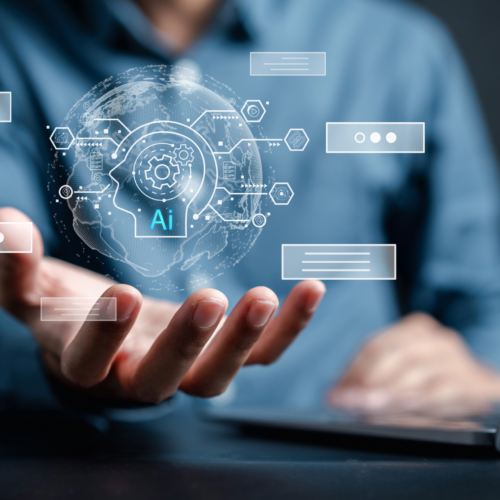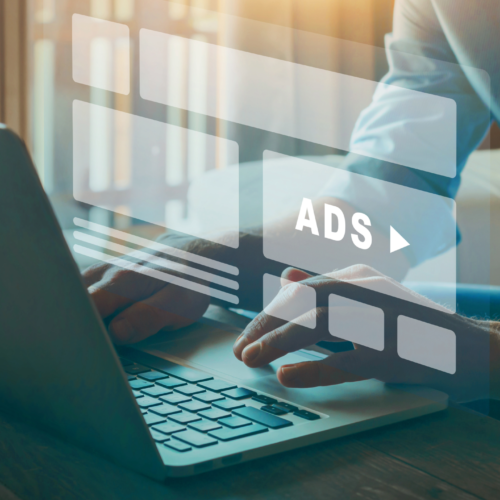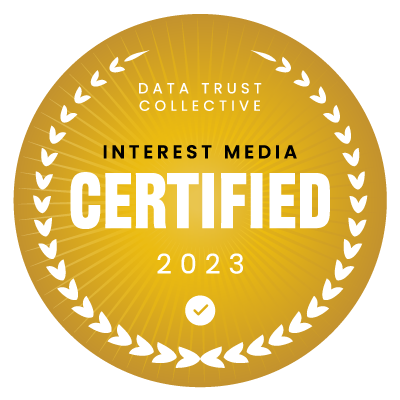
Harnessing the Power of AI to Redefine SEO
- Learn how AI can improve your website for search engines
- Embrace AI predictions to beat competitors
- Use AI in SEO to make informed decisions and enhance content
The face of Search Engine Optimization (SEO) is ever-changing, and a revolution is happening in the tech industry. SEO is shifting in response to new trends and technologies, including a focus on user intent, voice search rise, local SEO’s importance, mobile-first indexing, visual search, and machine learning algorithms. By staying up-to-date with these changes and adapting their SEO strategies accordingly, businesses can improve their online visibility and drive more traffic to their website.
In the article from Wordstream, they describe SEO as, “SEO works like a complex feedback system—to surface the most accurate, trustworthy, and relevant results for any given search using input from you, Google, and searchers.”
How AI can improve SEO
Artificial Intelligence (AI) has the potential to revolutionize the field of SEO by providing new and more effective ways of optimizing web content for search engines. Here are some of the ways:
- Natural Language Processing (NLP): NLP is a subfield of AI that focuses on the interaction between computers and human language. NLP can be used to analyze and understand the intent behind user queries, enabling search engines to deliver more relevant and accurate results. This can help businesses to optimize their content for specific user intents and improve their rankings on search engine results pages (SERPs).
- Predictive analysis: AI algorithms can predict which keywords and topics will be most relevant and valuable to users, allowing businesses to create content that is more likely to rank high on search engines. This can help businesses to optimize their content for user needs and preferences, improving their SEO performance.
- Voice search: AI-powered voice assistants, such as Siri and Alexa, are changing the way users search for information online. By understanding natural language queries and providing conversational responses, voice search technology is driving the need for businesses to optimize their content for voice search, including creating more conversational content and optimizing for long-tail keywords.
- Image and video search: AI-powered image and video recognition technologies are improving the accuracy of image and video search results. This can help businesses to optimize their multimedia content, such as images and videos, for search engines, by using relevant captions, alt text, and tags.
- Personalization: AI-powered personalization technology is improving the relevance of search results based on user preferences, search history, and behavior. This can help businesses to create more personalized content that is tailored to specific user needs and interests, improving their SEO performance.
Will SEO be affected by growing artificial intelligence?
Emerging AI technology will only serve to enhance SEO practices and strategies. AI and SEO work together, providing new and more effective ways of optimizing web content for search engines. AI is transforming how companies approach SEO by improving the accuracy and relevance of search results, enabling businesses to optimize for specific user intents and preferences, and driving the need for more personalized and superior content.
In 2009, MentorMate created a diagram to distill the complexities of SEO into essential steps and metrics needed in any search marketing campaign. With the help of AI streamlining processes and how much algorithms have changed, this chart seems too complicated for 2023.
Here are some easy ways to enhance your business and how AI can affect SEO:
Use ChatGPT to explain SEO or your products to enhance your results
If you are newer to SEO or want to improve your efforts, you can use ChatGPT as a research tool to improve your results. Use the tool to write AI-driven SEO content using specific keywords, which gets you more impressions in search results, visits to your site, customers, and conversions. It can be a great jumping-off point toward writing quality educational content.
“Content is the reason search began in the first place.” -Lee Odden at TopRank Marketing
Predict how algorithm changes will affect your search visibility
With AI, you can immediately predict SEO rankings months before those changes show up in their rank trackers. You can create an SEO testing platform based on real data. Algorithms can predict our intentions faster than we can. Entrepenuer.com states that “the reality is, every time we shop, whether online or in a store, we leave a pattern that brands can then use to send targeted advertising and coupons.”
Learn and observe decisions search engines make
You can use AI to assess why a competitor’s page is ranking higher than yours, explain to clients how Google has changed its algorithm, and analyze your own SEO strategies.
Conduct truly accurate competitive research with AI
Use AI to compare your pages to your competitors, from internal page links and backlinks, sorted by either link flow distribution, anchor text distribution, or both. See your competitors’ top-performing pages and make yours better.
Measure total link value
Measuring links is the most straightforward method of determining a site’s backlink value. Learn if your links are relevant, if the linking site is authoritative, and if your placements are valuable. The types of links on your page can significantly affect the value and ranking authority from one page to another. Measuring links is the most straightforward method of determining a site’s backlink value. The Search Engine Journal reminds us to:
- Place links considering the visitor’s intent and how to help them achieve their goals.
- Use links from trusted sites to build up an authority that will pass more link equity than links from brand-new sites just starting.
- Move links from the bottom of a page as they do not hold as much weight or authority in Google’s eyes.
- Avoid cluttered and excessive links to create a seamless user experience and avoid oversaturation.
Avoid keyword stuffing
Use AI to focus on responsible keyword SEO optimization, find related keywords, and avoid keyword stuffing. AI can help you find relevant topics and brainstorm quality keywords that will help your page rank better. As artificial intelligence search signals become more adept in processing natural language, websites with keywords that occur naturally in the content may enjoy a higher rank, meaning keyword stuffing as we know it could become obsolete.
How to embrace AI based SEO
AI can simplify your SEO optimization process and streamline your site. Your pages will rank better without you having to put in more hours. It can keep costs low and help your budget and site reach further. However, it’s not a substitute for quality editing.
Using AI for SEO will help ideas get started, automate daily tasks, and improve your SEO will improve your workflow. While this technology is a great asset, it’s not a substitute for human editing. You will still want to have someone checking behind the AI to ensure that your content is still quality level and there is no plagiarism or redundant phrases. ChatGPT isn’t going to replace your imagination or personal touches. Think of it as an assistant that can help jumpstart your creativity and not as your replacement.















Pingback: From Clicks to Conversions: How Intent Marketing is Revolutionizing Advertising - Interest Media